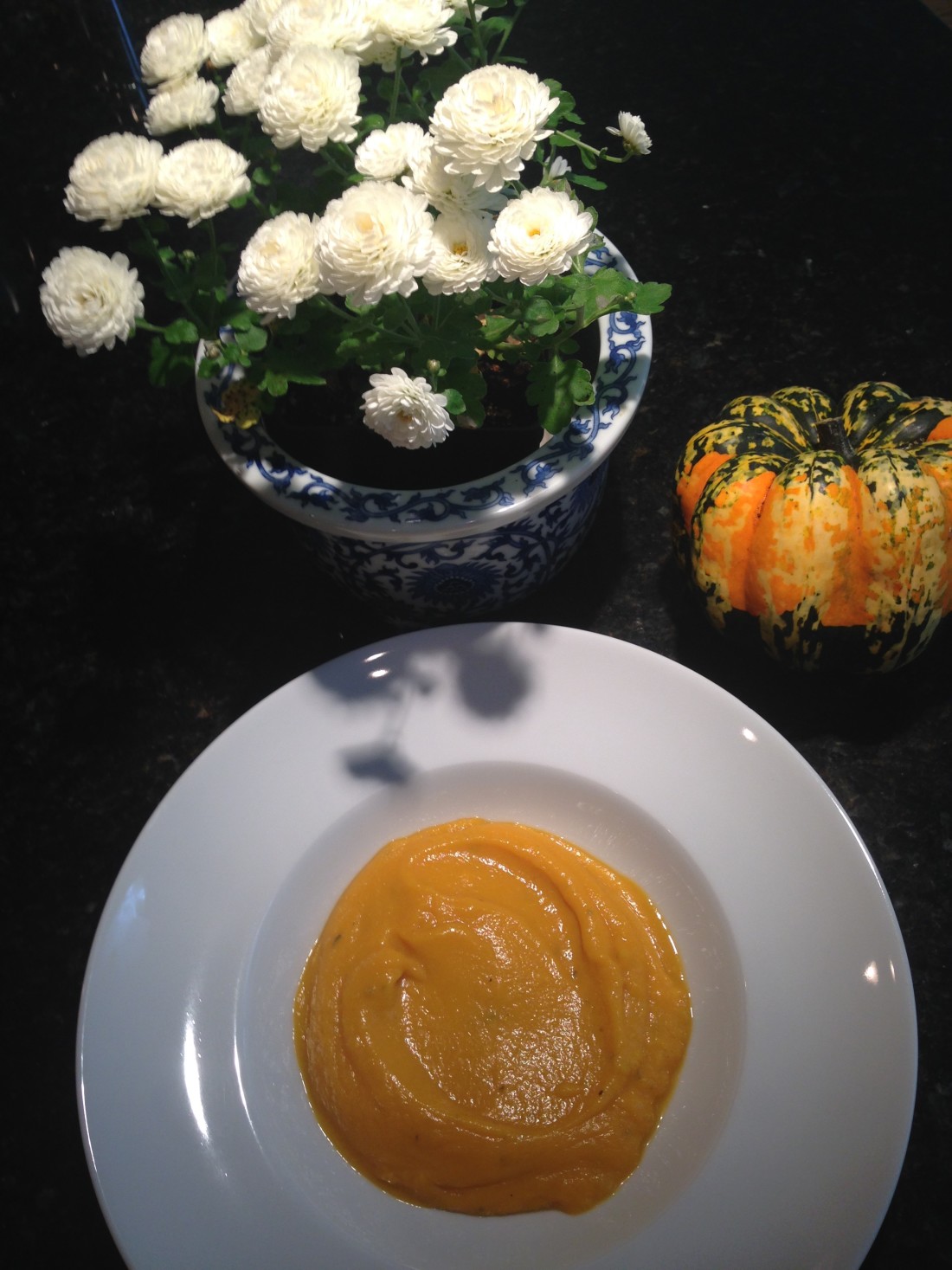All-Out Squash Soup: A Meditation on Trust
So much negativity in the air.
I stand at the sink and cut into a squash, its muscular sunshine flesh like nothing else on earth. My feet, my whole being, feels more surely grounded by this.
It is soup-making season again, this year a much-needed comfort.
At church on Sunday I attended a talk on the subject of trust. Trust is the basis of everything, the speaker proposed. What we trust, we love. What we love, we serve. It was as dazzling as my squash, as full of juicy seeds.
So. Americans’ public trust has been radically, catastrophically shattered – in this election process, in our racial politics, in our economic recklessness.
What, I ask as I peel away, do I trust?
Mammon? Fame? Achievement? The Past?
And how does my personal “trust-list” affect the life that I live in public, with others?
If I am really honest, I’ll admit that I’ve flirted with all of the options above at one time or another, imagining that my little dalliances won’t unsettle the deeper strata of what I think of as my true, higher, ground.
I’ve told myself that worshipping at the feet of Eileen Fischer or putting a good review up on a pedestal, won’t thin my soup or turn it bitter, or distract me from remembering to feed my family altogether. I’ve flirted with ambition and being in the “right place,” like the best (and worst) of us. Often have I fallen for woman’s cardinal sin, of saying, “Sure, I can do it, no problem,” just because I can, not because my heart has led me. I’ve run myself into the ground until the soul’s larder was so jammed with half-finished things that it started to attract little varmints of resentment and self-pity.
So, yes, I’ve been untrustworthy towards what is true and good, and for questionable ends – usually less out of pride than from an unclear sense of duty or calling. Out of a faltering trust.
What causes such faltering? Is it possible that the same lack of clarity has befallen us on a public level?
I know that I lose my grounding because I don’t pause regularly enough to do things like make soup, take time to reassess the high-speed buffet I keep adding to. I lose touch with the significant models of balance and integrity I hold dear. I start to mistrust my self because the parade is high-kicking it and I am afraid to be left in the dust.
What I need most when I get pulled out of true, is not to jump on the parade. I need a quiet morning like this one, when I don’t have to perform anything for anyone, when I am free to choose what I will do to feed my family, my own heart and soul.
I rummage in the fridg for inspiration – this being, always, an act of domestic improvisation. Today, it will be yellow carrots, a jalapeno, a few leaves of thyme. I will peel squash, answer mail, call a sick friend and read something meaningful. (I will resist phone texts, and hope I can hold out to dinnertime.)
Sunday’s speaker interjected a potent corrective to what ails us today when he noted that it is gestures, more than words, that express trustworthiness. It’s so easy to sound good. But it is the actions we choose to make every day, what we create or uphold or destroy, that stamp us as one kind of person or another.
Already pundits are asking: how can we mend the enormous fissures that divide us, heal the distrust and name calling and discord? How can we do something about the half-finished conversations, the unmet needs, that our damaging rhetorics have created?
I think we begin by posing the question I heard on Sunday.
What do we trust? What in us is worthy of trust? How do we begin to rebuild the promises that have been broken — to ourselves, to one another?
It is essential that we take the time to pull ourselves into true. Doing “nothing” – such as making soup – helps me remember what I trust most deeply, and to stay real in relation to it. Making soup is far better, than are many of the things that demands my attention. Doing so makes it ever easier to toss the catalogs.
Soup is all about the possibilities of a seed. Humble and close to the ground. What if every one of us in this country, or in the world, were fortunate enough to be able to make a pot of soup? To feed their families? To share a meal with strangers — even, perhaps, ideological opponents — at work, at school, down the street?
Truth is, most of the ingredients for such a dream — too small to merit the attention of pundits, too simple to become a marketing fad — are already in the collective larder. We just need to decide to trust the process.
What would happen if we started here?





No Comments